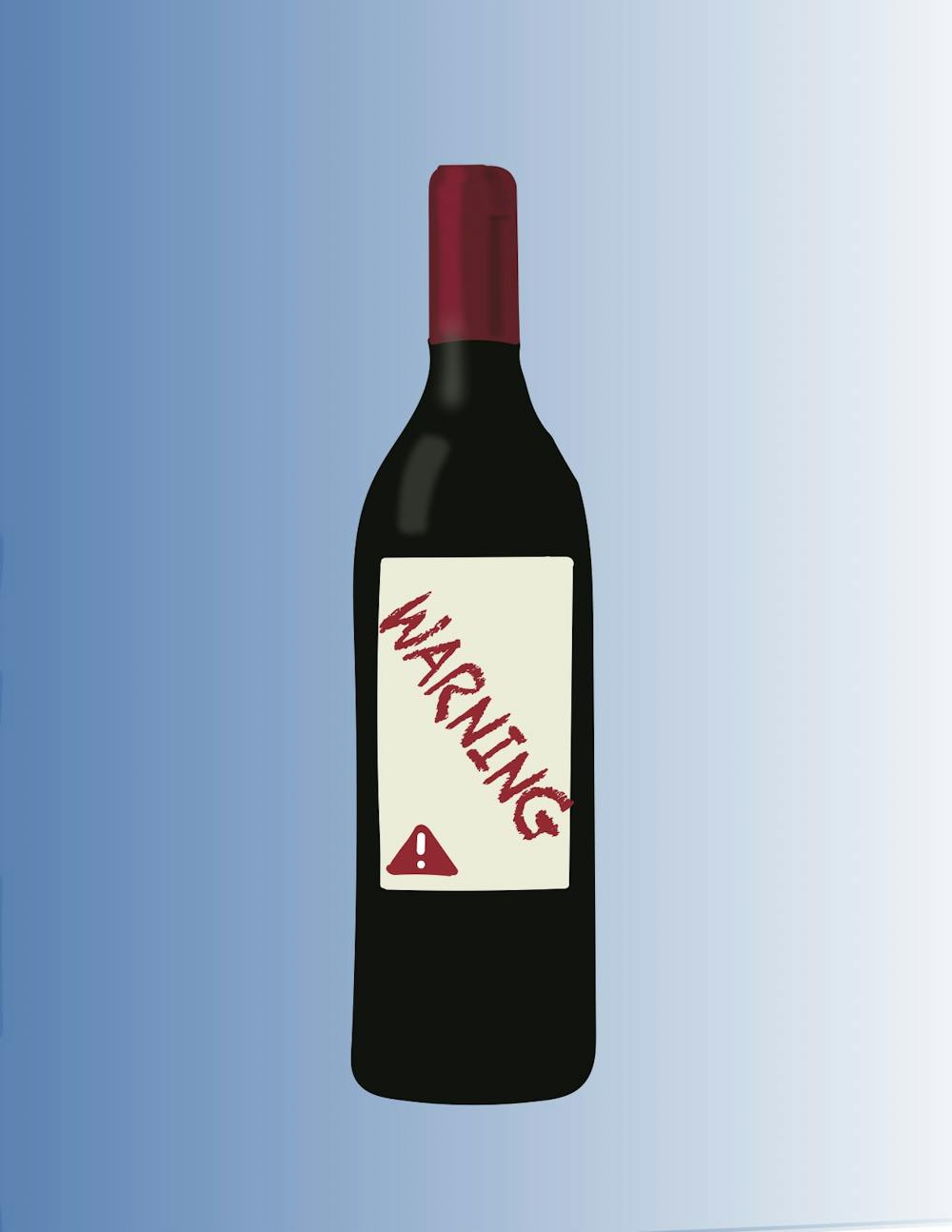A University researcher recently found that only 38 percent of the U.S. population was aware of the link between alcohol consumption and cancer risk. Working with collaborators at the National Cancer Institute, Kara Wiseman, assistant professor of public health sciences in the School of Medicine, used data from the Health Information National Trends Survey to analyze awareness of the alcohol-cancer link and the consequences for alcohol control policy support.
In contrast to knowledge of other cancer behavioral risk factors, public awareness of alcohol’s cancer risk is staggeringly low. For instance, 93 percent and 84 percent of Americans recognize that cigarette smoking and sun exposure are associated with cancer risk, respectively.
For Wiseman — even as a public health researcher — the lack of awareness of the alcohol-cancer link was not surprising.
“I think a lot of people understand the potential harms of alcohol, especially with heavy consumption,” Wiseman said. “You think about drunk driving and undergraduate students having to go to hospital. Cancer is not one that comes to mind quickly.”
Recent epidemiology research has shown that alcohol consumption at every quantity is associated with an increased risk of seven different cancers, including mouth, colon and breast cancer.
In terms of the factors obscuring awareness of this alcohol-cancer link, Wiseman hypothesizes that one may be the national clinical practice guidelines for physicians.
“At the moment, [clinical practice guidelines] do recommend that everyone is screened for alcohol use, but they only recommend counseling for heavy-use drinkers,” Wiseman said. “For some cancers we've seen that even lower levels of alcohol use are associated with increased risk.”
Wiseman added that there could be some cancer types that are being missed in patient discussions due to clinical practice guidelines.
Having identified the knowledge gap in alcohol-cancer awareness, Wiseman and collaborators at the National Cancer Institute also analyzed its impact on alcohol control policies, which have the potential to prevent alcohol-related cancers.
They found that almost two-thirds of Americans were supportive of communication-based alcohol control measures, including health warnings or drinking guidelines on alcoholic beverage containers. In further analyses, Americans who were aware of the alcohol-cancer link were also more likely to support alcohol control policies.
These conclusions suggest that increasing awareness of the association between alcohol and cancer through efforts such as public health education campaigns may also increase public support for alcohol control and cancer prevention policies.
Graduate Batten student Haydon Pitchford, who has several years of experience in clinical research, agreed that public education initiatives will be crucial to garner support for alcohol control policies, although one of many important factors.
“Developing a public consciousness and public knowledge of the [alcohol-cancer link] is important,” Pitchford said. “But what a lot of this will come down to is not just giving people information, but also making sure they have resources to go along with it.”
For alcohol control policies to be effective, Pitchford noted that alcohol companies may need to play a large role in providing the resources to increase public awareness of the association between alcohol and cancer risk. He cited the decades-long movement towards tobacco control, noting that anti-tobacco messages disseminated into public consciousness only after garnering funding from lawsuits against the tobacco industry.
“After tobacco companies entered into the [master settlement] agreement, they had to give hundreds of millions of dollars to different states to make up for healthcare costs and the social costs of cigarettes,” Pitchford said. “That is where a lot of the funding for public education and outreach came from, which helped shift the public perception of cigarette smoking.”
Although an arduous process, Pitchford is optimistic that the alcohol industry will eventually be subjected to similar accountability to help facilitate broader awareness of the alcohol-cancer link.
“A lot of public policy problems have been an issue for a really long time,” Pitchford said. “The United States justice system works slowly. But that doesn't mean that you can't still advocate for and make meaningful, transformative policy change.”
In the meantime, Wiseman and collaborators at the National Cancer Institute plan to continue this line of research by examining the factors that influence discussion of the alcohol-cancer link in doctor-patient interactions.
“We are using these data to start looking at associations between personal characteristics of our sample and provider discussion of the harms of alcohol,” Wiseman said. “We've seen that provider discussion increased awareness of the alcohol-cancer link, so we’re trying to better understand who is having this discussion and who is not.”
Ultimately, Wiseman is encouraged that public health scientists and public policy experts can later translate this research into action.
“In my role as a scientist, continuing to [measure] awareness is something that I will advocate for,” Wiseman said. “We can then know more about how people are thinking about alcohol and provide them information to make informed decisions about their health.”







